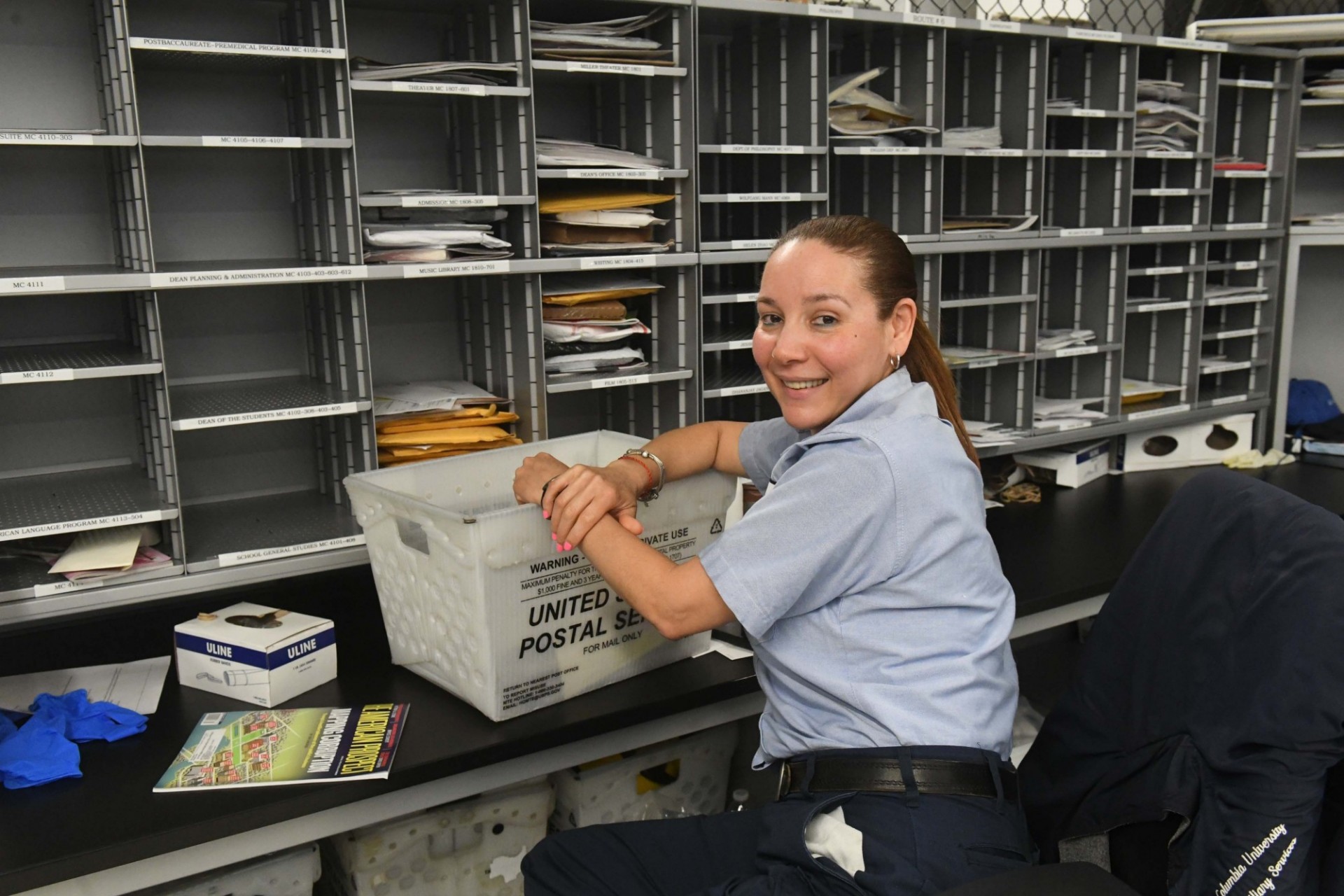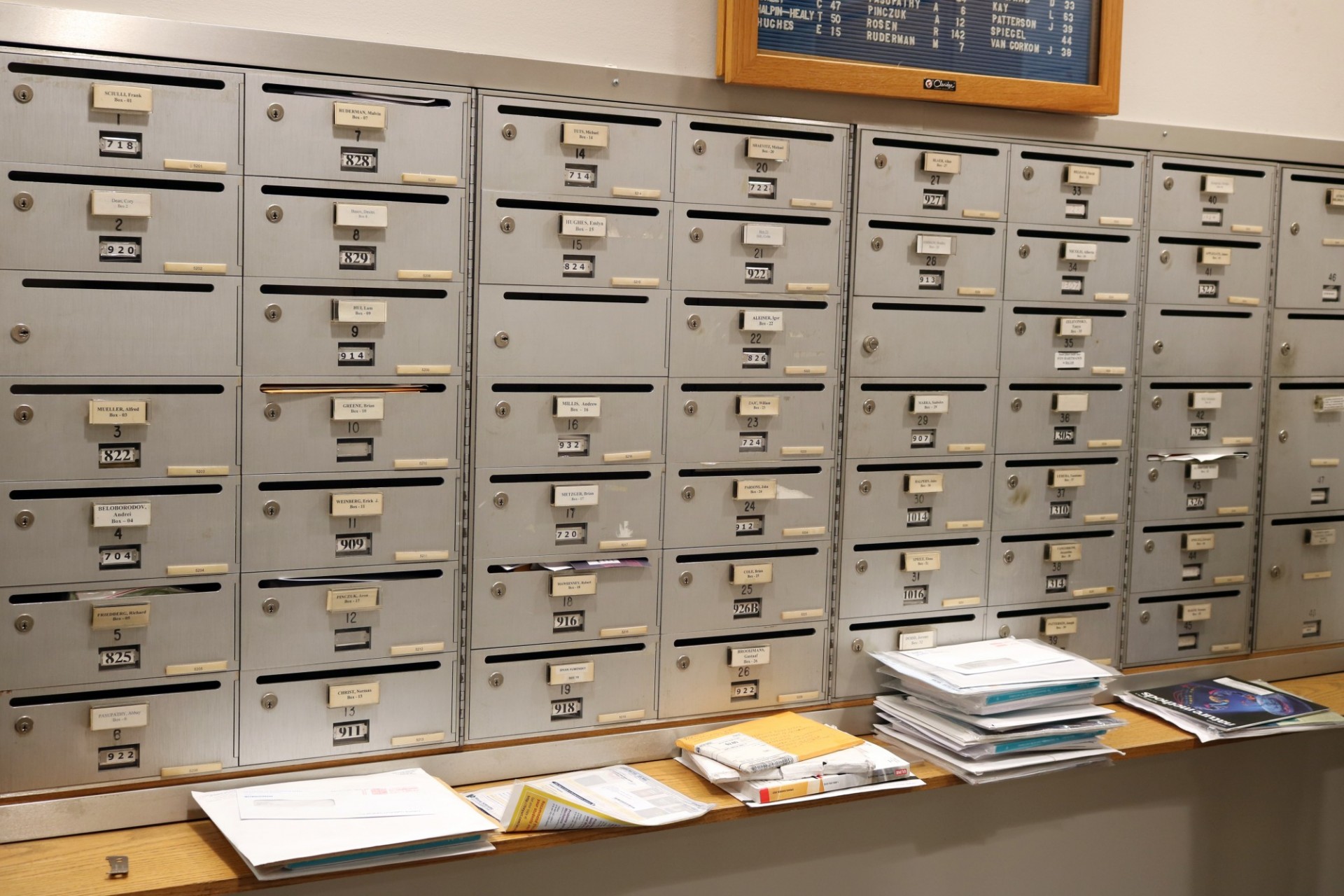Administrative Services Implements Creative Solutions to Pandemic Problems

When Columbia University closed campus to all but a portion of students and essential workers in March of 2020 due to the COVID-19 pandemic, everyone needed to adapt to new ways of working. Mail and packages needed to be delivered to home addresses rather than offices, checks distributed to employees who were no longer coming to campus each day, and transportation solutions were more integral than ever to deliver necessary personal protective equipment (PPE) — and eventually vaccines — to Columbia’s medical offices.
In the face of these unprecedented logistical challenges, the Administrative Services team, helmed by Executive Director Mike Pagan, implemented creative, out-of-the-box solutions to maintain operations.
Before the pandemic, the Administrative Mail department at Columbia only handled mail and packages from the United States Postal Service (USPS). But when much of the work being done on campus transitioned to remote work, the team modified operations to forward other carrier (FedEx and UPS) packages to home addresses quickly and securely.
Another important use of FedEx shipping was paycheck distribution. Employees who received paper checks pre-pandemic and could no longer come to campus to pick them up were able to get them forwarded to their home addresses through Columbia Mail’s system. While this might seem like a small change, receiving funds in a timely manner was of critical importance for employees and their families.
The team also created solutions for those who came to campus periodically to conduct research. When the Physics Department needed to receive packages from private carriers like UPS and FedEx, Administrative Services created a miniature mail and package hub in Pupin Hall, now dubbed the Express Mail Center. Mimicking the Student Mail Center in operations, participants receive a notification when their packages are ready for pick-up.

Administrative Services created custom mail solutions for several other departments as well. Some departments were entirely closed and needed everything forwarded, while some scheduled periodic deliveries for pick-up. Columbia Mail even altered their delivery routes to meet the needs of individual departments.
“Mike’s team did the most to support academic operations on campus throughout the past year, with creative problem-solving and an irrepressible belief that we could handle every challenge,” said Scott Wright, Vice President for Campus Services.
In addition to keeping campus operations moving smoothly, Administrative Services was also able to help with other essential functions, like the United States Census and the November 2020 election.
In advance of the June 2020 deadline, the team coordinated efforts with Columbia Undergraduate Housing, CUIMC Housing, and Facilities and Operations’ Residential team to identify the total number of residents that needed to be counted in the United States Census. Over 7,000 residents were counted, with 77 electing not to release their information.
In advance of the November 2020 election, the team implemented a student ballot tracking and notification process in an effort to make every student’s vote count.
Students living in the residence halls who requested absentee ballots from their home county could track the arrival of their ballot to the Student Mail Center. Given the time-sensitive nature of returning their ballot to be counted, the tracking system also notified students when their outgoing ballot was shipped, providing peace of mind in an uncertain time. Of the undergraduate students living in the residence halls during the Fall 2020 term, 73% utilized the ballot tracking service.
Administrative Services was also essential in delivering much-needed PPE to CUIMC’s Columbia Doctors offices at West 51st Street and in Tarrytown in the spring of 2020. In 2021, when Columbia began to provide COVID-19 vaccinations to the community, the team helped deliver the vaccines to key locations like Lerner Hall. This process is still in play today, as all Columbians returning to campus this Fall are required to provide proof of vaccination.
“It almost becomes easy to take on new challenges when our community and the nation are in the midst of a pandemic that touches almost every individual personally,” said Mike Pagan. “But it must be said that the solutions and successful execution were made possible by the dedication and hard work of our entire Mail, Transportation, and Print teams. I am truly grateful for their selfless service, honored to work with them, and comforted in knowing that we will continue to meet new challenges together as they arise.”
